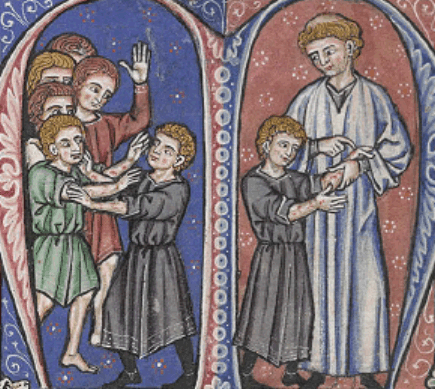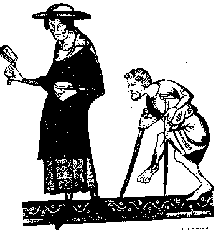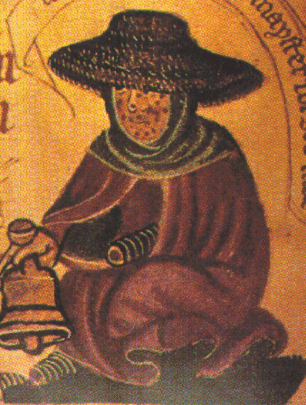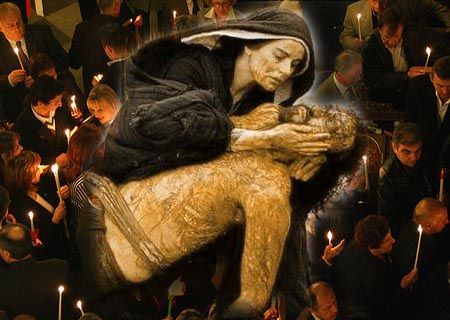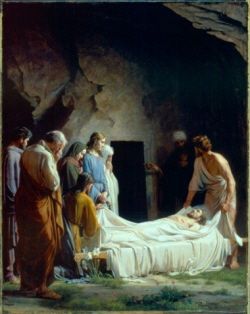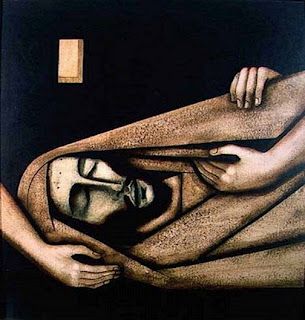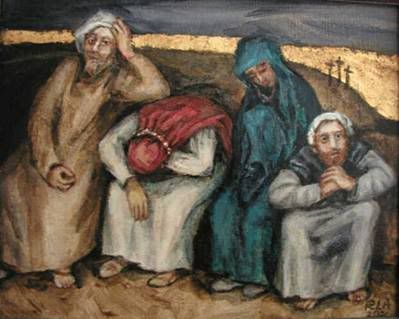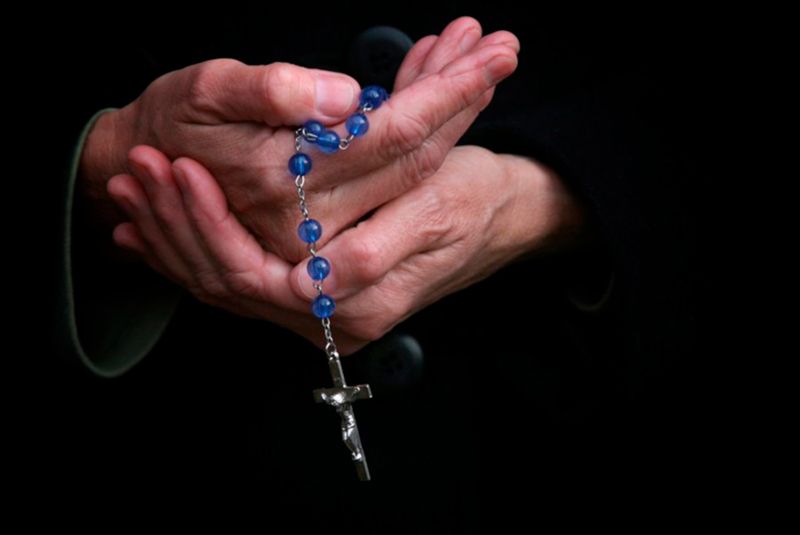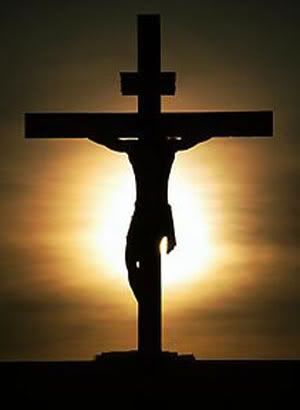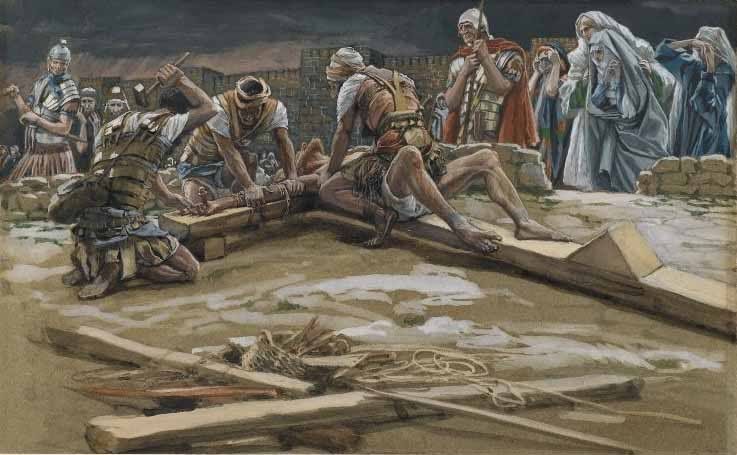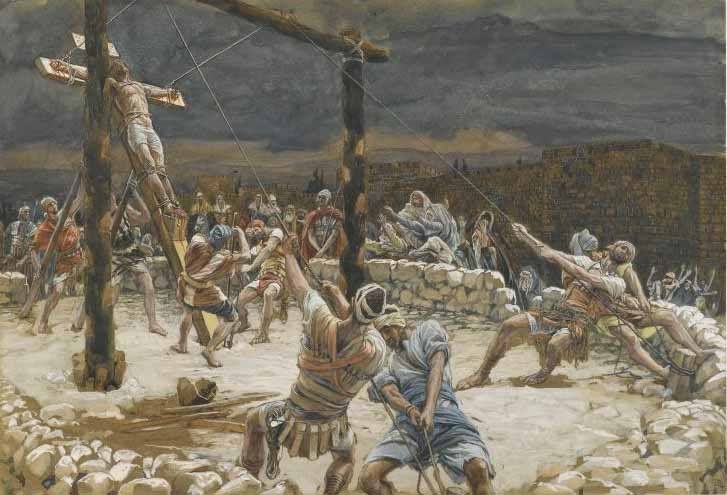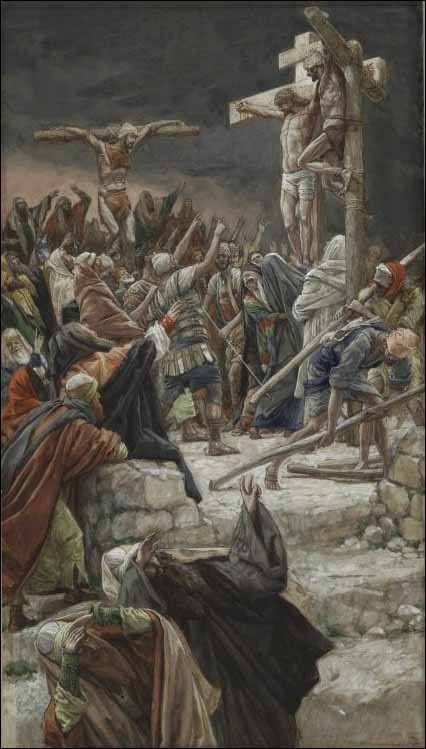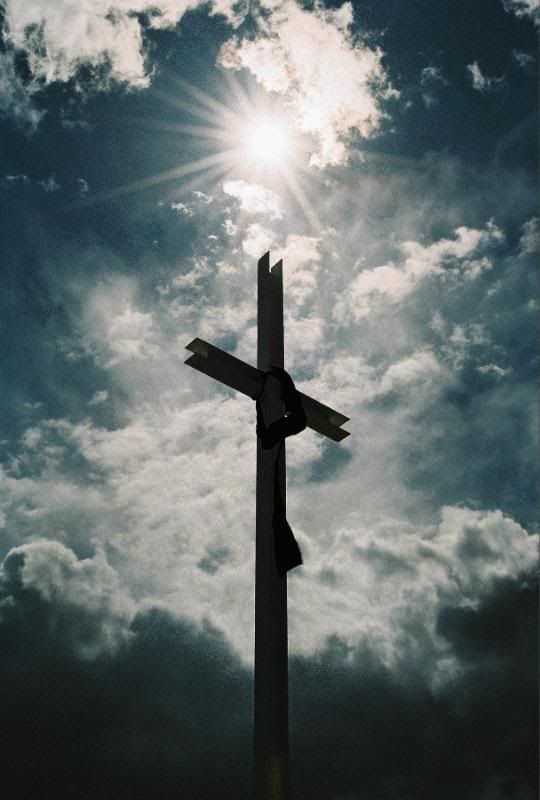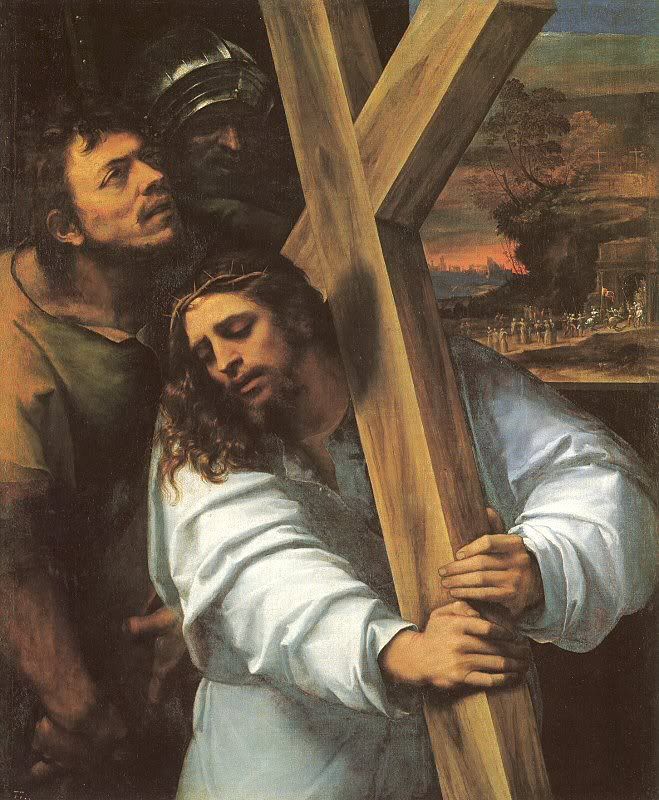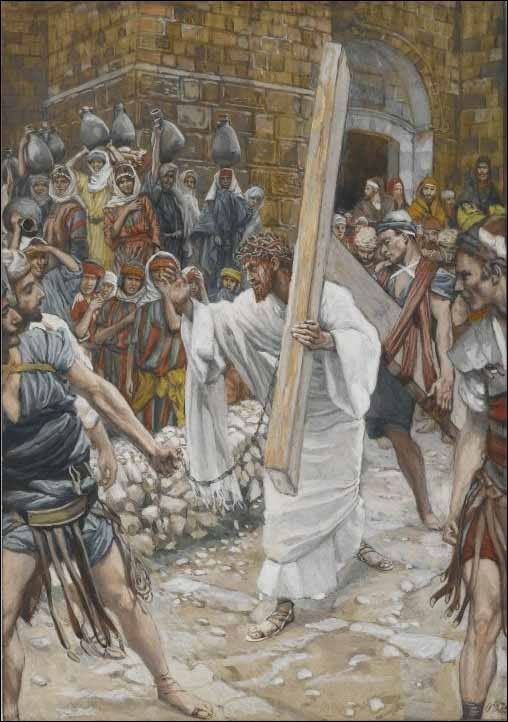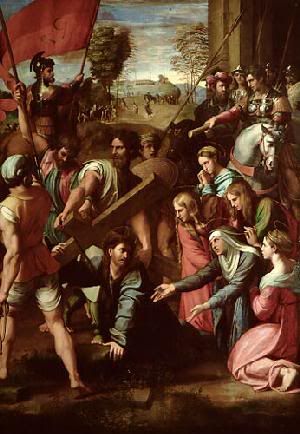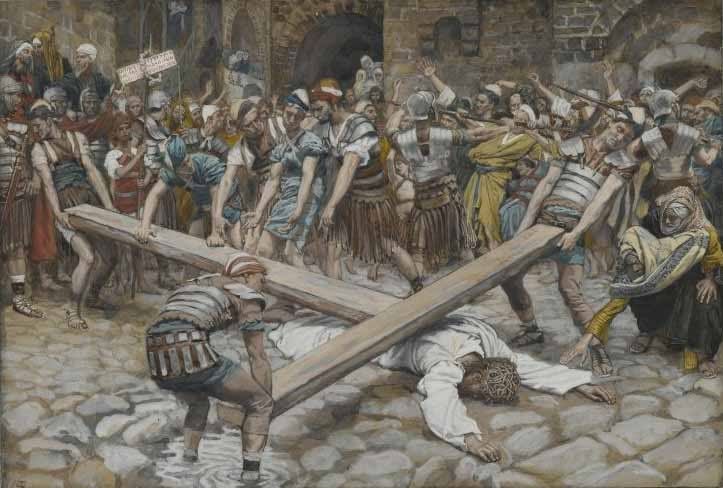Today we
celebrate the feast day of a lesser-known saint, Saint Aimo (died 1137). Saint Aimo was a monk, born near Rennes,
France, in a difficulty time of poverty and sickness. As a young man, he entered the Benedictine monastery at Savigny,
France (in modern-day Normandy). There,
he demonstrated his charity and love for all those in the community.
Of particular
note, Saint Aimo fearlessly ministered to members of the community who were
afflicted with Leprosy. Given his
seeming lack of personal fear, and confidence and joy in his work, his
superiors assumed that he, too, was infected with the dreaded illness. As such, he was segregated from the
community, as was the practice in that day, and spent his days as a laybrother
in humble service to the ill.
Over time, his
superiors realized that he was not infected with leprosy. Saint Aimo, who never complained at his
isolation, was eventually returned to the general population of the community,
selected to become a priest, and ordained.
He went on to preach charitable kindness and experience mystical
ecstacies.
The life of Saint
Aimo reminds us all of our call to service, charity, and love for one
another. All too often, we may refrain
from helping others, either out of concern for ourselves, our health, the
appearance it might give to others, or our own financial security. As with Saint Aimo, we must remember that
the Lord will care for us and provide for us, as we do for our brothers and
sisters. Today, we pray for charitable
hearts open to the needs of those in our community and our world.
O my Jesus, Thou who art very Love,
enkindle in my heart that Divine Fire
which consumes the Saints and transforms them into Thee.
O Lord our God,
we offer Thee our hearts
united in the strongest and most sincere love of brotherhood;
we pray that Jesus in the Blessed Sacrament
may be the daily food of our souls and bodies;
that Jesus may be established as the center of our affections,
even as He was for Mary and Joseph.
Finally, O Lord, may sin never disturb our union on earth;
and may we be eternally united in heaven with Thee
and Mary and Joseph and with all Thy Saints.
Amen.
enkindle in my heart that Divine Fire
which consumes the Saints and transforms them into Thee.
O Lord our God,
we offer Thee our hearts
united in the strongest and most sincere love of brotherhood;
we pray that Jesus in the Blessed Sacrament
may be the daily food of our souls and bodies;
that Jesus may be established as the center of our affections,
even as He was for Mary and Joseph.
Finally, O Lord, may sin never disturb our union on earth;
and may we be eternally united in heaven with Thee
and Mary and Joseph and with all Thy Saints.
Amen.
Prayer Requests: End to financial difficulties,
successful business opportunities (P); Resolution of immigration difficulties (A);
Healing, continued employment, grace in old age (S); For personal and family
intentions (M); Success in academics, family life, and faith (C); Healing of a
father with lung infection (L); Healing of a brother with cancer (S); Healing
of a relationship with the Lord (L); Employment for a son, end to anxiety and
financial stress for a family (M); Blessing upon a relationship and marriage
(A); Blessing and early release from jail for a son, restoration of a marriage
(B); Comfort and healing for a sick sister and colleague (M); Guidance and the
Lord’s will in a new career (C); For healing in a relationship (A); For healing
of depression (B); Resolution of a medical condition (J); For Blessings upon a
marriage (S); Healing of a son with a congenital heart defect (J); Grace in
relationships (A); Blessings and healing upon a mentally ill daughter, peace
and comfort for family (M); Success in academic endeavors, successful passing
of important examination (R); Blessings upon an unborn child, mother, and
family (A); End to pain and anxiety, freedom from cancer (J); Health, healing,
and grace in relationships (S); Success of overseas work (M); Blessings upon a
family (S); End to legal difficulties, healing (K); Grace in relationship (M);
Blessings upon a relationship (C); Restoration of a relationship (P); Blessings
upon a father, academic success for children (J); Blessings upon a family (K);
Healing, strength (S); Healing of stomach and mental health issues, strength
for medical tests (M); Employment for granddaughter (C); Restoration of a
marriage (J); For a young man discerning vocations (P); Continued successful
employment (E); Successful Employment (P); Successful employment (L); Healing
upon a husband and a relationship (E); Success in legal situation (J); healing,
freedom from pain, successful employment, financial recovery (A); Financial
security (C); Resolution to financial and legal difficulties (B); Academic
success for children, occupational security (C); Resolution to immigration and
employment challenges (K); Restoration of a marriage (M);







